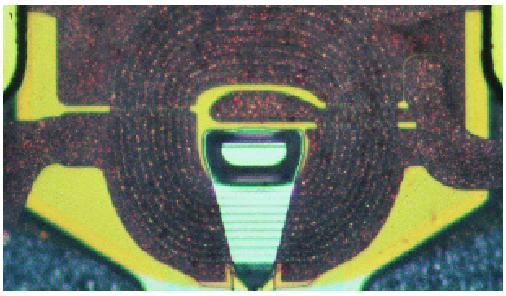Application Dominated Corporate
Research:
A Research Project in the Philosophy of
Science
 
Matthias
Adam - Martin
Carrier - Torsten
Wilholt
Application dominated research
 
Sociologists of science have recently proposed
that we are presently witnessing the development of a new kind of
knowledge production. (Gibbons et al. 1994. Funtowicz & Ravetz
1993.) One of their claims is the advent of what could be labelled "application dominated science".
In application dominated science, the
traditional distinction between basic and applied research is taken
no longer to hold good. Instead, this hybrid type of research
requires and achieves fundamental scientific insights (like basic
research) and at the same time primarily strives for the development
of specific applications (like applied research).
This raises the question whether scientific
knowledge as gained in application dominated contexts differs from
knowledge as obtained by traditional, primarily epistemically
oriented research. Two questions suggest themselves from a
philosophy of science perspective:
1. What is the structure of the theoretical
models that arise from application dominated research?
2. Which standards for evaluation are adopted in
application dominated contexts?
The aim of the project is to find out whether
the domination of scientific research by practical concerns leads to
a change in the epistemic strategies. On the one hand, provisional
epistemic strategies might emerge that favour local models
accepted,on the basis of their pragmatic virtues. On the other hand,
traditional epistemic criteria such as the close interlinkage of
models with the body of established knowledge and the empirical
adequacy across a wide range of phenomena might prove to be the most
efficient way to develop successful applications.
The results of the projects can contribute to
the understanding both of the effects of the increasing predominance
of practical concerns on the epistemic constitution of science and
of the pragmatic utility of theoretical knowledge.

Micrograph of a GMR read head (IBM Corp.)
Corporate research
 
An ever larger share of scientific research is
conducted in corporations or in close partnerships between academia
and business. In various fields, substantial contributions to
science have arisen from this research, even though it has largely
been conducted with a close eye on prospective marketable
applications. Such corporate research is therefore prototypical for
application dominated research.
The project focuses on case studies taken from
two areas, pharmaceutical research and magneto-electronics. Cases
from pharmaceutical research concentrate on drugs developed by
rational drug design. For rational drug design, structural
information on proteins is gained in order to develop drugs that act
on proteins in a specified way. For example, the determination of
the 3D-structure of angiotensin converting enzyme has led to the
development of captopril, an antihypertensive drug.
In the area of magneto-electronics, the case
study focuses on corporate research on giant magnetoresistance
(GMR). GMR is a novel effect that was discovered only in 1988 and
transformed into markatable technology within astonishingly short
time. The physical mechanism of the effect had to be explored along
the way. Most prominently, it is applied in all contemporary
high-performance read heads for computer hard disks.
The project is conducted in close cooperation
with the VW-research group Science
in Transition - Towards the Knowledge Society at the Institute for
Science and Technology Studies of Bielefeld University. It is
funded by the Deutsche
Forschungsgemeinschaft.

Angiotensin Converting Enzyme (Natesh et al. 2003)
Bibliography
 
S.O. Funtowicz & J.R. Ravetz (1993)
"The Emergence of
Post-Normal Science", in: R. von Schomberg (ed.), Science,
Politics and Morality. Scientific Uncertainty and Decision
Making, Dordrecht: Kluwer, 85 – 123.
M. Gibbons, C. Limoges, H. Nowotny, S. Schwartzman, P. Scott
& M. Trow (1994)
The New Production of Knowledge. The
Dynamics of Science and Research in Contemporary Societies, London:
Sage
R. Natesh, S. Schwager, E. Sturrock,
K. Acharva (2003)
Crystal Structure of Human Angiotensin
Converting Enzyme-Lisinopril Complex: The Protein Data Bank,
Nature 421, pp. 551. | 


